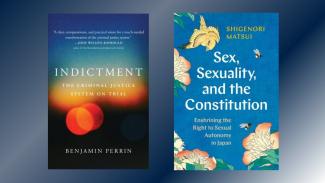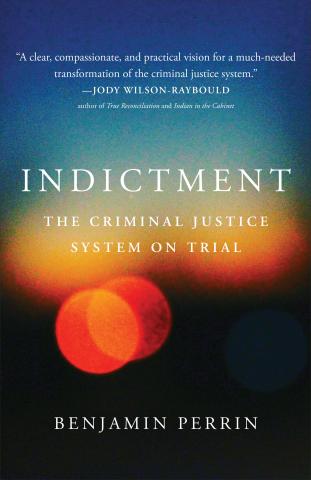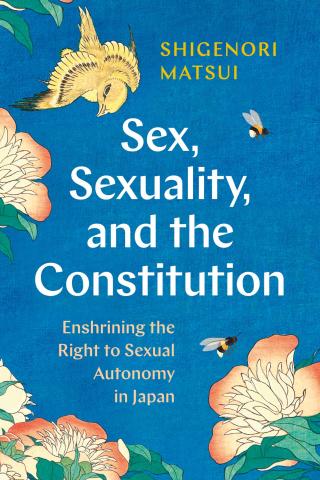
Looking for your next read? New books by Allard School of Law professors Shigenori Matsui and Benjamin Perrin provide fresh perspectives on critical legal and social policy challenges, offering new paths forward.
Allard Law professors Jie Cheng and Joel Bakan explain why these books should be next on your reading list.
Indictment: The Criminal Justice System on Trial by Professor Benjamin Perrin; University of Toronto Press 2023

Indictment is at once a revelation and a model for great non-fiction writing. In it, Ben Perrin thoughtfully and carefully deconstructs Canada’s criminal justice system. He reveals it to be an inhuman, ineffective and Kafkaesque monolith that not only fails miserably to serve its stated purposes but also causes people real harm, especially if they are Indigenous or Black, afflicted with substance addictions and other mental health issues or experiencing homelessness and poverty.
Perrin indicts Canada’s criminal justice system with the analytical rigour and painstaking research one would expect of a distinguished scholar like him. But what makes the book truly revelatory, as well as deeply moving and persuasive, is the way Perrin weaves into his arguments and data the stories and insights of the people most affected by the system’s failings — survivors, accused and Indigenous leaders — and the broad array of frontline workers who work within, and deal with the fallout from, a flawed criminal justice system. Not content to simply deconstruct the system, Perrin also provides a pathway towards reconstruction. Whether one agrees or not with every aspect of Perrin’s plan, his forceful and elegant articulation of it inspires hope that positive change is possible.

| Joel Bakan is a professor at the Peter A. Allard School of Law. He writes and researches in the areas of constitutional law, socio-legal studies, legal theory and economic law. |
Sex, Sexuality, and the Constitution: Enshrining the Right to Sexual Autonomy in Japan by Professor Shigenori Matsui; UBC Press 2023

Shige Matsui’s Sex, Sexuality, and the Constitution offers a systemic examination of Japan’s legal landscape concerning sexual autonomy from three key dimensions: the right to determine sexual identity, the freedom to engage in or abstain from sexual activities and autonomy in decisions related to parenthood. Matsui’s analysis provides a rare and comprehensive exploration, shedding light on the intricacies of Japan’s societal norms.
A noteworthy aspect is Matsui’s exploration of the government’s response to the challenges posed by an aging population. The book adeptly navigates the complex interplay between sexual autonomy and population policies, offering valuable insights into how Japan addresses its demographic concerns. Another critical matter brought to light by Matsui is the absence of a constitutional entitlement to sexual autonomy, distinct from the constitutional right to sexual equality. This raises significant questions about the legal framework governing sexual autonomy and its implications for individuals in Japan.
In addition to its normative stance advocating for the right to sexual autonomy, the book serves as a compelling call to action. Moreover, Matsui’s exploration of the potential consequences of addressing the aging population issue through the lens of sexual autonomy emphasizes the delicate balance required when navigating individual liberties and broader societal concerns.

| Dr. Jie Cheng is an associate professor at the Peter A. Allard School of Law. Her teaching and research interests include Chinese law and government, comparative constitutionalism, judicial politics, freedom of information and Hong Kong Basic Law. |


